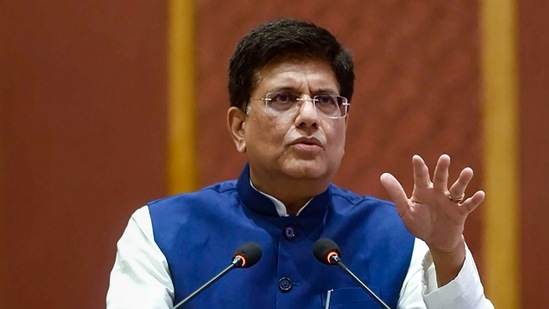A road map for India to engage with global trade
India had its reasons for opting out of the trade pillar of IPEF but firms can still be part of global supply chains by paying close heed to emerging rules governing trade
When Prime Minister (PM) Narendra Modi endorsed the Indo-Pacific Economic Framework (IPEF) in May, the decision seemed to resonate with the government’s newfound confidence in forging trade agreements with partner countries. At the end of last year, Union commerce minister Piyush Goyal announced that India was negotiating eight comprehensive economic partnership agreements, a much-enlarged version of the traditional free trade agreements (FTAs). One of these agreements, with the United Arab Emirates (UAE), is being implemented, while the first step towards another with Australia has also been taken. Further, agreements with the European Union, the United Kingdom, and Canada, among others, are currently being negotiated. Amid these engagements, Goyal’s recent announcement that India will stay away from the trade pillar of the IPEF while joining the other three sounds a discordant note, although the minister indicated that this decision could be reviewed.

The IPEF, essentially a Joe Biden administration brainchild, is working towards a set of rules for enhancing engagement between 14 countries. The rules cover four pillars — fair and resilient trade, supply chain resiliency, clean energy decarbonisation, and tax and anti-corruption. The trade pillar includes issues intimately linked to the United States’ (US) trade agenda — labour standards, environment and climate, digital economy, agriculture, transparency and good regulatory practices, competition policy and trade facilitation.
Labour standards usually entail conforming to the fundamental conventions of the International Labour Organization (ILO), which include freedom of association and right to collective bargaining, abolition of forced labour and child labour, and eliminating discrimination in employment and occupation. In short, the strengthening of labour rights. As the US views them, rules on environment and climate will require conformity with the principles of the Paris climate convention that seeks to limit greenhouse gas emissions.
There is no mention of tariff liberalisation in the IPEF, which is usually integral to trade agreements. The Biden administration clarified that the IPEF is “intentionally designed not to be a same old... traditional trade agreement”. Its primary objective is to ensure a high degree of regulatory coherence and to make market access contingent upon conformity to regulatory standards.
If the rapid elimination of tariffs, which has been India’s bugbear, is not part of the IPEF’s trade pillar, why is India reluctant to engage? The answer was provided by Goyal in his interview with this paper. Apparently, India’s reluctance arises from the possibility that the trade pillar “may involve certain binding commitments” about meeting labour and environmental standards, “which have traditionally not been a part of [India’s] agreements”. The minister also hinted that the government is unsure about digital trade.
This is hardly surprising given that the government is yet undecided about whether to limit cross-border data flow by insisting on data localisation or to meet the demands of global digital companies and allow unimpeded cross-border free flow of data.
Of course, for India, the most sensitive issue in the trade pillar is agriculture, which the minister didn’t elaborate on. Securing larger markets for its agricultural products has always been a top priority for the US in its bilateral and regional agreements. Should the US seek to realise the same objective via the IPEF, India would find it difficult to accommodate the interests of foreign players, especially given the fragility of its farming communities.
While flagging the areas of concern, Goyal emphasised that India would be participating in “resilient supply chains”, which is one of the key objectives of the IPEF. India’s stance raises three sets of questions, the resolution of which is imperative for India to remain meaningfully engaged with the IPEF supply chains.
First, supply chains are organically linked to trade rules agreed to under bilateral and regional agreements, and the IPEF will be no exception. Second, it is important to recognise that conducting trade with advanced countries via bilateral and regional agreements is well-nigh impossible without conforming to labour standards. The US and the EU do not endorse agreements that don’t include provisions on labour standards. And, third, some EU members are now adopting labour standards to monitor the functioning of supply chains, thus making these standards even more potent in an interconnected world.
Globally, supply chains have expanded on the back of supportive rules on trade and investment, besides conforming to technical standards. Just-in-time operations, without which supply chains cannot function, are critically dependent on liberal trade rules, an enabling environment for companies to operate freely, and ensuring that components and final products emerging from supply chains meet requisite technical standards. Labour and environmental standards are increasingly getting enmeshed in these rules. The trade pillar in IPEF has been tasked with designing these rules to make supply chains more resilient and well-integrated.
The EU members are in the process of adopting guidelines to ensure that companies respect labour rights and the environment when they are part of supply chains. Once adopted, companies will be required to “identify and, where necessary, prevent, end or mitigate adverse impacts of their activities on human rights, such as child labour and exploitation of workers, and on the environment”. Germany went a step further by enacting the Supply Chain Act in 2021. From 2023, companies must ensure that human rights, including workers’ rights, are not violated in their business operations and supply chains in the country. Businesses in India need to give close consideration to these emerging sets of rules so that they can remain meaningfully engaged in global trade.
Biswajit Dhar is professor of economics, Jawaharlal Nehru University
The views expressed are personal
Continue reading with HT Premium Subscription




